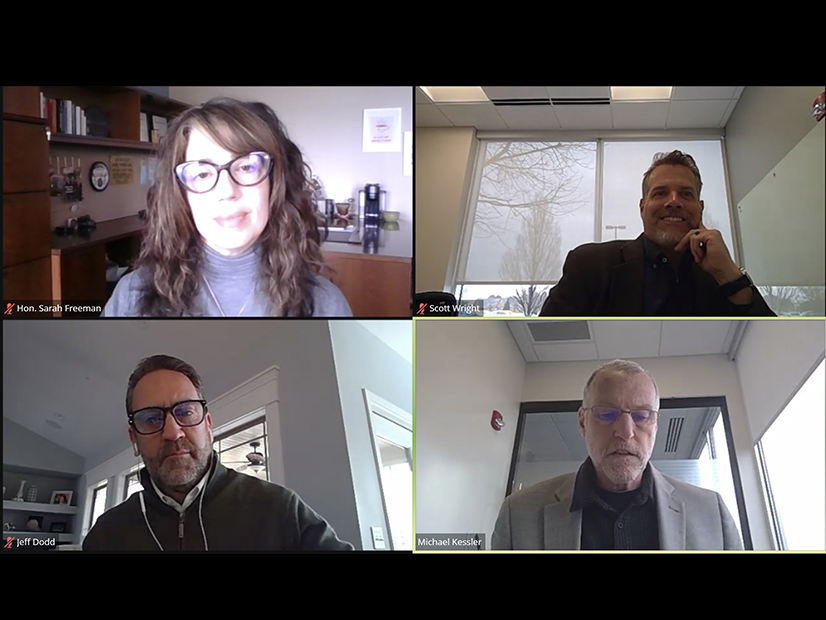
Transmission construction and MISO market facelifts can help the Midwest reliably adjust to a new resource reality, panelists said Tuesday during an Energy Bar Association (EBA) teleconference.
“This is a time that is really a seismic shift in the industry,” Ameren Director of RTO Policy Jeff Dodd said during a discussion hosted by EBA’s Midwest chapter.
MISO counsel Michael Kessler said the grid operator is besieged by declining reserve margins as aging baseload units are replaced with renewables. He said even a growing natural gas fleet might not be able to procure enough fuel to keep the grid reliable at times.
Scott Wright, the RTO’s executive director of market strategy, said the changing resource fleet has placed MISO at the doorstep of reliability problems.
“This is not a far and distant problem. This is here now,” he said.
Wright said, “excess reserve margins are a thing of the past” and the grid operator now navigates challenging conditions carefully and with little capacity to spare.
He said MISO must build long-range transmission to bring an additional 120 to 330 GW of additional capacity online by 2040. Those figures are necessary to meet members’ carbon-reduction goals or bring the footprint to net-zero carbon emissions, Wright said.
The RTO recently revealed a potential multistage long-range planning portfolio. (See MISO Long-range Tx Plan Overlaps with SPP Study.)
“It used to be a moderated pace of change. To me, it’s [now] a rush,” Wright said. He also called environmental and social governance awareness “the new kid on the block” that stands to hasten fleet change.
Wright said natural gas generation used to be viewed as a bridge to clean energy. “Now, they’re burning the bridge,” he said, referencing utilities focusing on renewables over needed centralized power.
Wright questioned whether “storage has come along enough” to meet instantaneous load. He said the RTO’s operations will become much more complex in the coming years by optimizing load and managing decentralized resources.
“There’s a lot of different ‘minding of the store’ that’s going to need to happen here,” Wright said. He added that he didn’t mean to sound “defeatist” or “sensational” and said MISO has a solid, well-functioning market in place today that simply requires adaptation.
Dodd said distribution companies, transmission planners and state regulators must engage in a level of coordination that wasn’t necessary a few years ago.
“A lot of utilities are starting to understand we need all these groups in the same room,” he said.
Organization of MISO States President Sarah Freeman, an Indiana Utility Regulatory commissioner, called the path to net-zero emissions a “juggling of the chainsaws.” She said that just as MISO’s geography and resources are diverse, “cultures among governing bodies” are also diverse within the footprint.
“I say Indiana is a red state going green,” she said.
Dodd said in Ameren’s experience, customer preference, not state policy, is driving the clean energy conversion. The company has a 2050 net-zero emissions goal, but Dodd said that target could be accelerated. He also noted Ameren Illinois must cease all fossil generation in the state no later than 2045, according to state law.
Dodd called transmission “a facilitator” in the transition to a cleaner generation portfolio.
“MISO has success with this scenario planning,” Dodd said of the three 20-year planning futures used to justify transmission projects. He said the 2011 Multi-Value Project (MVP) portfolio continues to deliver benefits well in excess of the $6.5 billion cost.
The MVP portfolio had a “Field of Dreams: if you build it, they will come” approach, Dodd said. With MISO’s long-range planning, there’s now little doubt that new lines will be useful, he said.
“Those lines were fully subscribed as soon as they were built,” he said of the MVP’s success. “I think MVPs laid the groundwork for the long-range transmission plan.”



